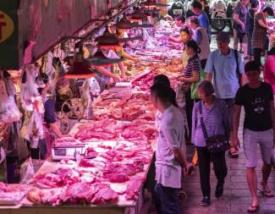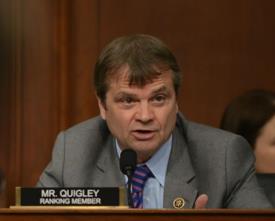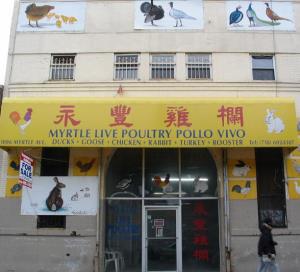 U.S. Representatives Mike Quigley (D-IL) and Fred Upton (R-MI) and Senators Cory Booker (D-NJ) and John Cornyn (R-TX) have introduced bills respectively in the House and Senate intended to close commercial wildlife markets and end trade in live wildlife for human consumption. The Preventing Future Pandemics Act is based on the certainty that continued trade and consumption of wildlife will inevitably result in the emergence of a pathogenic virus with pandemic potential.
U.S. Representatives Mike Quigley (D-IL) and Fred Upton (R-MI) and Senators Cory Booker (D-NJ) and John Cornyn (R-TX) have introduced bills respectively in the House and Senate intended to close commercial wildlife markets and end trade in live wildlife for human consumption. The Preventing Future Pandemics Act is based on the certainty that continued trade and consumption of wildlife will inevitably result in the emergence of a pathogenic virus with pandemic potential.
 Rep. Quigley stated “The Preventing Future Pandemics Act takes aim at wildlife markets and the trade that supplies them, positioning America as the global leader in replacing wild protein sources with safe alternatives and fighting to ensure that nothing like the COVID-19 pandemic happens again.”
Rep. Quigley stated “The Preventing Future Pandemics Act takes aim at wildlife markets and the trade that supplies them, positioning America as the global leader in replacing wild protein sources with safe alternatives and fighting to ensure that nothing like the COVID-19 pandemic happens again.”
The Preventing Future Pandemics Act would end the import, export and sale of live wildlife for human consumption in the United States and be part of U.S. foreign policy directing the U.S. State Department to collaborate with international partners to close commercial wildlife markets and end trade in food products derived from wildlife.
 It is known that certain strains of avian influenza can infect humans. Accordingly, it is not just wildlife with the potential for emergence of zoonotic diseases. The possibility exists in many major cities in the U.S. where ethnic minorities support live animal and bird markets. There is virtually no consumption of wildlife purchased in commercial markets in the U.S. other than domestic venison. We do not consume the variety of species including reptiles, birds, and mammals as in China and other Asian nations. Neither do we consume “bush meat” as in Africa. We do however live with a potential hazard in the form of urban wet markets, which are an anachronism in the U.S. during the 21st Century. These establishments, however strictly monitored at state expense, represent a hazard with respect to foodborne disease and a potential future problem in relation to adaptation of pathogens from domestic livestock and poultry to humans as asusceptible host.
It is known that certain strains of avian influenza can infect humans. Accordingly, it is not just wildlife with the potential for emergence of zoonotic diseases. The possibility exists in many major cities in the U.S. where ethnic minorities support live animal and bird markets. There is virtually no consumption of wildlife purchased in commercial markets in the U.S. other than domestic venison. We do not consume the variety of species including reptiles, birds, and mammals as in China and other Asian nations. Neither do we consume “bush meat” as in Africa. We do however live with a potential hazard in the form of urban wet markets, which are an anachronism in the U.S. during the 21st Century. These establishments, however strictly monitored at state expense, represent a hazard with respect to foodborne disease and a potential future problem in relation to adaptation of pathogens from domestic livestock and poultry to humans as asusceptible host.